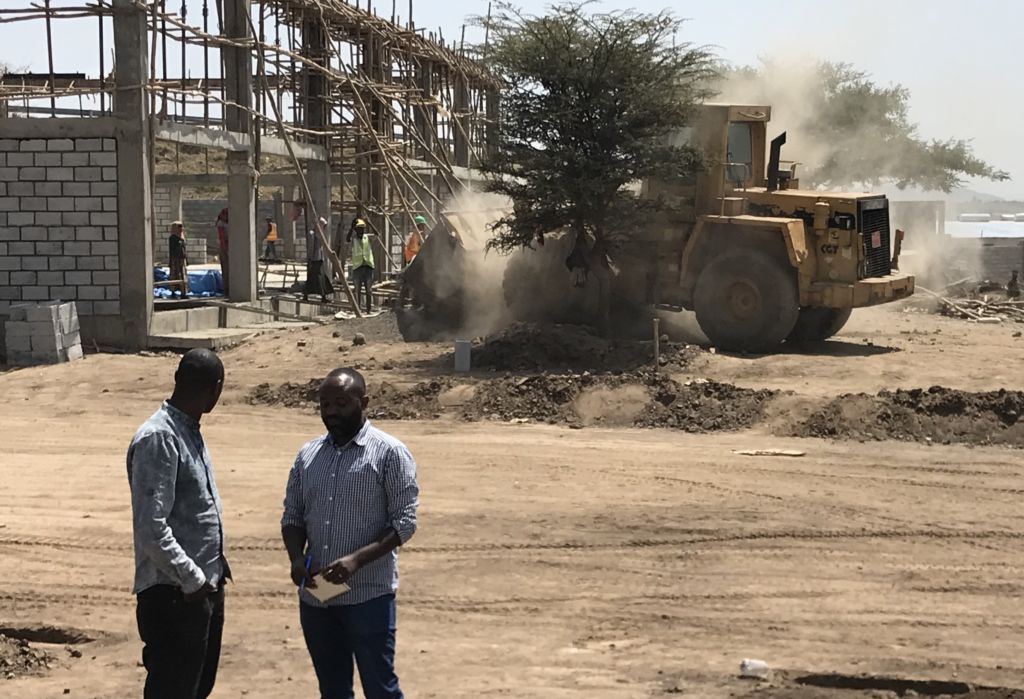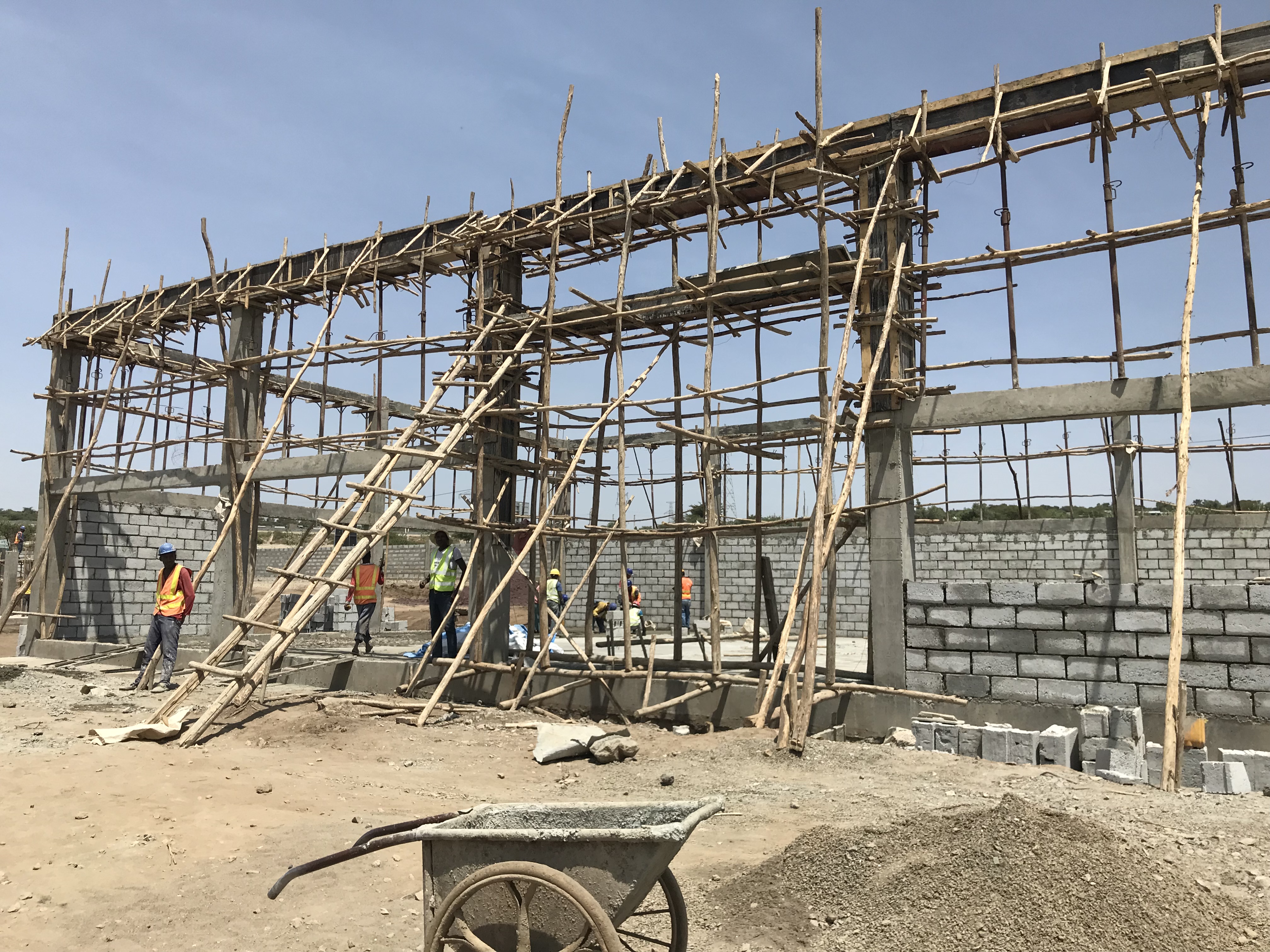WDI Works on Plan to Tackle Ethiopia’s Medical Waste Problem
Thursday, January 17, 2019

Ethiopia’s first medical waste incinerator facility under construction outside Addis Ababa.
A group of business leaders are partnering with the William Davidson Institute to find both financially and ecologically sustainable solutions to Ethiopia’s medical waste problem.
While Ethiopia has official directives that mandate the proper and timely disposal of medical waste, enforcement often has been challenging. This has resulted in warehouses full of expired pharmaceuticals along with biomedical waste generated by hospitals and other healthcare facilities. The Ethiopian government recently decided to address the pharmaceutical waste problem and is looking for a company from the private sector to be part of a Public-Private Partnership (PPP).
The government has started building its first medical waste incinerator facility outside the capital city of Addis Ababa to burn expired pills, and has committed to building seven more around the country. A group of business managers led by Mel Negussie and Tamrat Bekele are interested in managing the business aspects of operating the incinerators and have asked WDI to help them think through the business plan.
Through the work of WDI staff, including Claire Hogikyan, vice president of administration and publishing at WDI, and a team of Weekend MBA students, WDI is developing a proposal to be presented to the government later this year. The proposal will include analysis on several aspects of the incinerator project, including estimating costs, pricing and a plan to scale it. The plan will include an autoclave facility in Addis Ababa that would handle a buildup of biomedical waste from surrounding healthcare facilities, another challenge the Ethiopian government is trying to address.
The idea for an autoclave facility came after Hogikyan traveled to Ethiopia in fall 2018 on a fact-finding mission. At the end of her week-long visit, Hogikyan thought Negussie and his group needed to go in a different direction. While many expired pharmaceuticals can be incinerated, many cannot. For example, medications that are toxic or items such as inhalers that would explode when burned can not be incinerated. Additionally, there are ongoing environmental concerns that accompany incineration.
Most U.S. hospitals, including at the University of Michigan, use an autoclave to properly dispose of expired pharmaceuticals as well as biomedical waste. An autoclave uses heat to disinfect the material and a grinder -similar to a kitchen sink disposal system enlarged and turned on its side. The disinfected and ground material is spit out onto a conveyor belt where a pulverizer breaks down the material further into indistinguishable components. The remaining waste is then dumped into plastic barrels which are shipped to a landfill and buried.
“An autoclave would improve the environment,” Negussie said. “Addis is growing. It is also becoming polluted. Every hospital burning their own medical waste isn’t going to help. An autoclave is a green solution.”

Negussie also is member of Ethio-American Doctors Group (EADG), a group of more than 250 Western-trained clinicians who have committed time and money toward the development of a world-class tertiary care hospital in Addis Ababa. WDI has worked with EADG since 2014 on the governance of the hospital, capital equipment planning, nurse training and a financial model.
When he and his partners began thinking about the incineration project, he reached out to WDI for assistance. He and his partners have operational and project management experience, he said, but needed WDI to strategize with them, to shape a business plan and provide a roadmap to profitability.
“We need someone to help us think through business concepts from capital expenditures, the ownership, the management, the logistics in terms of how it connects,” Negussie said. “What is the proper way of disposing it? What are the other options? Someone to really do the business plan on the business services. That’s not something we can do.”
The businessmen expect to submit proposals to the Ethiopian government this spring to operate the incinerators and also open an autoclave facility. Negussie said he hopes to have an autoclave in the capital city up and running by fall 2019.
WDI President Paul Clyde said the Ethiopian partnership is a great fit for the Institute. He said Negussie and his partner, Tamrat Bekele, are smart businessmen trying to build a model to solve a problem that hasn’t been addressed by a profitable business in the past.
“Working with them to develop something in medical waste gives us a model that we can take to other countries and work with other partners to develop similar businesses,” Clyde said. “Medical waste is an area that hasn’t received the attention it needs in many countries, but we can expect that to change in the coming years as businesses begin to play a more important role in filling that gap.”
